Photographs: Rungroj Yongrit/Reuters
How to co-operate effectively with both India and China without seeming to favour the relationship with one at the cost of the other, will be one of Obama's big challenges, says B Raman
How to co-operate effectively with both India and China without seeming to favour the relationship with one at the cost of the other? That will be one of the main strategic objectives of President Barack Obama's forthcoming Asian tour during which he will be visiting India, Indonesia, Japan and South Korea.
His observations during his visit to China in November last year had given rise to an impression in India that his administration had downgraded the importance attached to the USA's relations with India by his predecessor George W Bush and had started viewing India as a sub-regional power not on par with China.
How Obama can balance India and China
Image: China's Premier Wen Jiabao with Prime Minister Manmohan Singh and ASEAN Secretary General Surin PitsuwanPhotographs: Hoang Dinh Nam/Reuters
Correcting this impression without adding to Chinese fears of an attempt by the US to use India against China will be one of the objectives of his forthcoming visit to India and his subsequent meeting on November 11 with President Hu Jintao of China on the margins of the G-20 summit in South Korea.
The policies of the Bush administration had given rise to fears in the Chinese mind that it was seeking to use India and Japan to encircle China. Obama's attempts to play down these fears had created suspicions in India's mind that he did not accord the same importance to the USA's relations with India as Bush had done.
Obama is keen to remove the impression in India that its importance vis-a-vis China had been downgraded by him while at the same time reassuring China that it has nothing to fear from closer Indo-American relations. A preview of how he intended doing this has been available from the remarks of Hillary Clinton, the US Secretary of State, during her current tour of East and South-East Asia.
'The relationship between China and US is complex'
Image: A man walks past a picture of US President Barack Obama outside the US embassy in BeijingPhotographs: Jason Lee/Reuters
She has been quoted as saying as follows in a speech during her first halt at Honolulu on October 28: "The relationship between China and the United States is complex and of enormous consequence but we are committed to getting it right. There are some in both countries who believe that China's interests and ours are fundamentally at odds. They apply a zero-sum calculation to our relationship, so whenever one of us succeeds, the other must fail.
"But that is not our view. In the 21st century, it is not in anyone's interest for the United States and China to see each other as adversaries. In a crowded field of highly dynamic, increasingly influential emerging nations, two stand out: India and China. Their simultaneous rise is reshaping the world and our ability to cooperate effectively with these countries will be a critical test of our leadership."
The larger strategic issue will be the defining theme
Image: A visitor looks at a picture showing China's President Hu Jintao reviewing soldiers during a parade in front of Tiananmen Gate at the Chinese Military Museum in BeijingPhotographs: Jason Lee/Reuters
This strategic objective of finding ways of co-operating effectively with both India and China is expected to be the main theme of his discussions with the Indian leaders in New Delhi and his meeting with Hu Jintao in Seoul on November 11 as well as of the meeting on October 29 of Hillary Clinton with Chinese state councillor Dai Bingguo in Hainan.
From the various background briefings given by officials of the White House and the State Department at Washington DC on the eve of Obama's visit to Asia, it is fairly clear that his visit to India will have a much larger strategic canvas than what one had seen during the visit of Bush in 2006. It will not have a single point focus. There will be no flagship issue.
The larger strategic issue of the US, India and China in Asia will be the defining theme of his visit. Other subjects such as the implementation of the civil nuclear co-operation agreement, removal of the names of some Indian establishments from the so-called list of entities barred access to US technology, Indian purchase of US military equipment etc are likely to be discussed in the margins of this defining theme, but at the sub-summit level by the officials of the delegations without Obama himself devoting too much attention to it.
US support to India's UNSC bid will be a tricky issue
Image: Visitors are silhouetted in front of a statue of a hand holding a gun next to a Chinese Communist Party flag at the Chinese Military Museum in BeijingPhotographs: Jason Lee/Reuters
However, counter-terrorism co-operation will continue to be an important subject on the summit agenda in view of the importance attached to it by Indian public and political opinion and the continuing negative impact of terrorism on India's relations with Pakistan. What contribution the US can make to removing the distrust between India and Pakistan will be a subject next in importance to the role of the US, India and China in Asia.
The question of US support to India's permanent membership of the UN Security Council will be a tricky issue. There is no question of the US working for it unless it is certain that Japan and Germany too get in. Even in the unlikely event of China changing its present opposition to India becoming a permanent member, there is no question of its supporting Japan now or ever.
A mix of symbolism and substance
Image: A colour guard of US and Chinese flags awaits President of China Hu Jintao's plane in WashingtonPhotographs: Jonathan Ernst/Reuters
Obama's visit will have a mix of symbolism and substance. The symbolism will be seen in Mumbai where he will demonstrate his solidarity with India in its fight against terrorism and pay tribute to the resilience of Mumbai and its business community in the face of repeated terrorist strikes in this business city. He has deliberately chosen Diwali for the start of his visit to underline his confidence that ultimately good will prevail over evil. The substance will be seen during his talks with the Indian leaders in New Delhi and in his address to the joint session of the Parliament.
Next to his visit to India, his visit to Indonesia, with the largest Muslim population in the world, will be of major significance. He is expected to address the Islamic world from Indonesia in continuation of his address from Cairo last year. He is expected to focus on the thinning down of the US military presence in Iraq, his keenness for a similar thinning down in Afghanistan and the goodwill of the US to the Muslims of the world even while carrying on its fight against Al Qaeda and its associates.

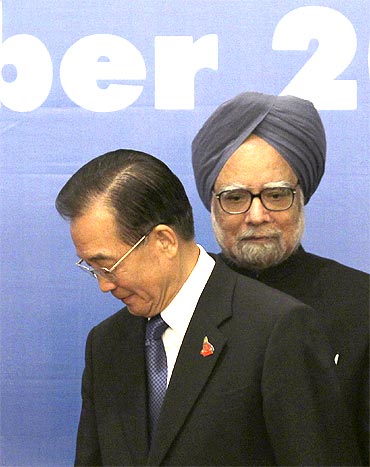
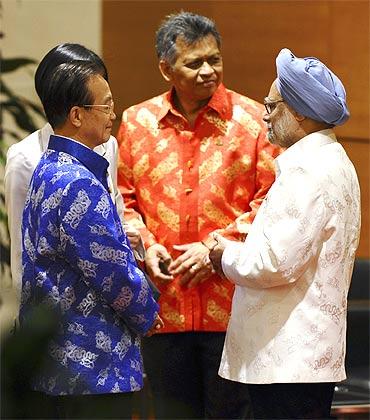
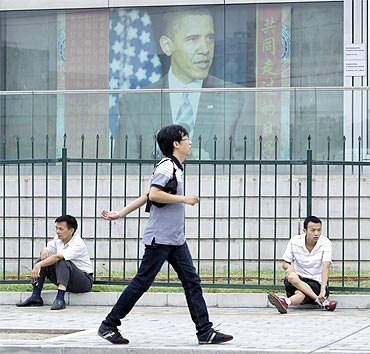
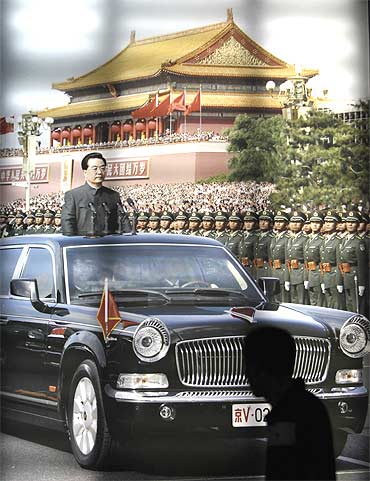
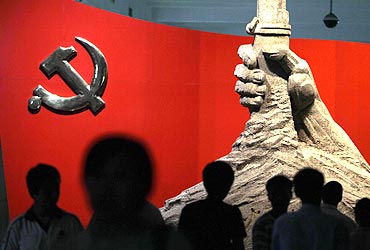
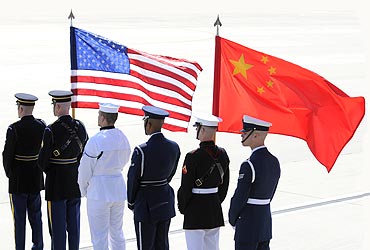
article